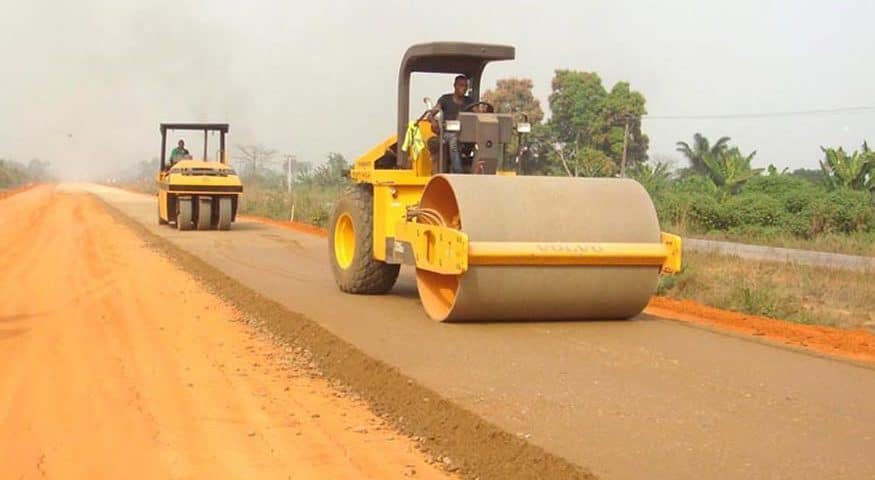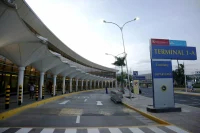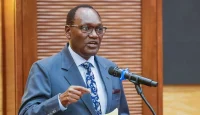A member of the Public Private Partnership Petition Committee has been sucked in conflict of interest issues as the committee prepares to hand down a decision regarding Kenya’s most prestigious highway contract. The issues were raised before the hearing of a case filed by one of the consortia interested in the multi-billion tender for the construction of Nairobi-Nakuru-Mau Summit road.
The PPP Committee of the Treasury is the first stage of potential litigation should parties be dissatisfied with the outcomes. The battle for the tender pits two powerful consortia and threatens to degenerate into a full-blown litigation after one of the bidders rejected the bid outcome and filed a petition.
Although the petition Committee rejected the application for recusal raised by advocate Andrew Musangi for Mota-Engil Engenharia (Portugal), Orascom Construction (Egypt), Egis Projects SA (France) and African Infrastructure Investment Fund 3 Partnership, the members acknowledged the fact that Mr Paul Karekezi, the CEO of GIBB Africa Ltd and a member of the Committee, has previously worked as a consultant for the contracting Authority KeNHA.
Mr Musangi informed the Committee before the hearing of the petition that he had brought the matter to the attention of Prof Albert Mumma, who represents Kenya National Highways Authority. Karekezi admitted at the Friday sitting that he had acted for RVC on the Nairobi, Nakuru, Mau Summit tender.
The Committee also acknowledged that conflict of interest had been raised against Ms Beatrice Nyabira, who is a partner at the law firm of IKM. The law firm, it emerged, had worked with one of the consortia. The conflict of interest had also been raised through a letter to the Committee on March 15.
But in a ruling, the Committee said it had deliberated over alleged conflict of interest and concluded that it doesn’t warrant a recusal. The Committee is comprised of James Kihara (chairman), Mr Karekezi, Ms Ledisha Kipseii, Maurice De Souza and Ms Nyabira.
KeNHA declared the consortium of Vinci Highways SAS, Meridian Infrastructure Africa Fund and Vinci Concessions SAS, also known as Rift Valley Connect (RVC), as the preferred bidder.
Mota-Engil Engenharia (Portugal), Orascom Construction (Egypt), Egis Projects SA (France) and African Infrastructure Investment Fund 3 Partnership has accused the contracting authority of lack of transparency and non-disclosure, even after writing to KeNHA on how they settled on the preferred and reserve bidder.
Mr Musangi said after writing to KeNHA, the agency gave them a one-line determination, without reasons for picking them also as the reserve bidder. According to the lawyer, a party should be given reasons for any action and where no reasons are given, it is presumed that something is not right.
[ Read Also: Comedian on the brink of winning presidential elections ]
He said the process has taken more than three years – from 2015 to 2018 – but when bids were finally ready, they were given a summary in one line on February 22. “Apart from being casual, the contracting authority was completely in breach of legal tenets. We should be told why each party ended at a certain position,” Mr Musangi said. He said the bidders are in a unique position and KeNHA should strive to communicate with reasons.
“A party should be given reasons for any action affecting its rights. How was, for example, the preferred bidder ranked and why each party ended in the position they are,” he said.
Mr Musangi said there are tax compliance matters, viability of the financial proposals, delivery of the proposals and whether the government is getting value for each proposal. “The evaluation took 10 months. One line determination in itself shows that something was not right,” he said adding that it can be presumed that the decision was taken without good reasons.
He urged the Petition Committee to quash the decision and order fresh evaluation with full disclosure. “As a committee you have no choice but to nullify the decision of the contracting authority,” he said.
In reply, KeNHA through Prof Albert Mumma, questioned the legality of the person who filed the case on behalf of the consortium. Prof Mumma told the Committee that there was no valid petition before them because the consortium was not a legal person hence cannot sue.

He said Mr John Kimotho, who has filed the complaint on behalf of the consortium, is a stranger because there was nothing to show that he was granted the authority.
The lawyer further said, there was a confidentiality clause in the tender documents and that KeNHA cannot be compelled to release them at this stage. He further said the request was premature because contracting authority will, at some stage, make available the documents, for scrutiny.
But in reply, Mr Musangi said Mr Kimotho is an employee of AIM, one of the consortia and had full authority to file the case on behalf of others. He urged the court to ignore procedural technicalities in favour of the substantive justice.
[ Read: The six things you should never tell your boss unless you want to be fired ]
At the heart of the tender dispute are concerns that the preferred bidder did not comply with Kenyan tax law in the bid it submitted. The result of this non-compliance is that it understated the tax to be paid by US$ 312 million (approximately Ksh31.2 billion).
The Kenya Revenue Authority, in an opinion to KeNHA, confirmed the correct tax treatment that the bidders ought to have applied. In addition, the preferred bidder wrote a letter to KeNHA stating that in order to apply the correct tax treatment, it would need to increase the price initially quoted in its bid.
The Request for Proposals that was issued by KeNHA and which they filed before the petition Committee stated that the price of the bid is the ‘Quarterly Charge’, which is the amount to be paid by the government every three months once the project is implemented. The quarterly charge was supposed to include “all applicable taxes’ but remains veiled in mystery as the Petitioners fight for disclosure.
[ See Also: KRA boss John Njiraini takes on the man who’ been tormenting him ]












Leave a comment